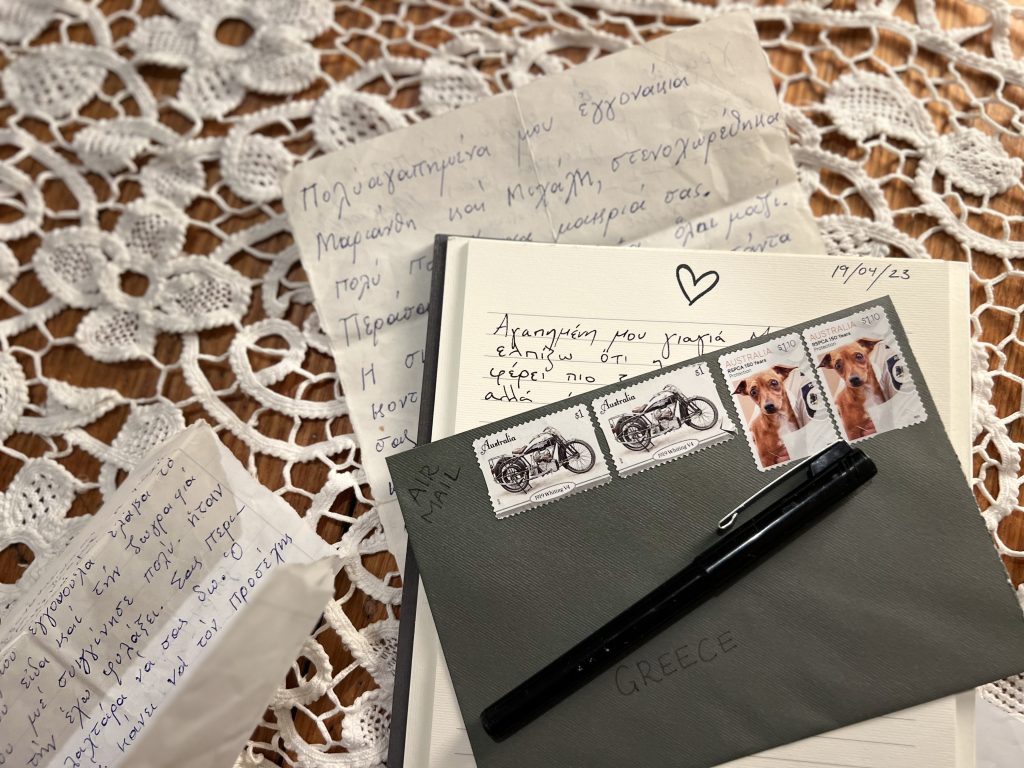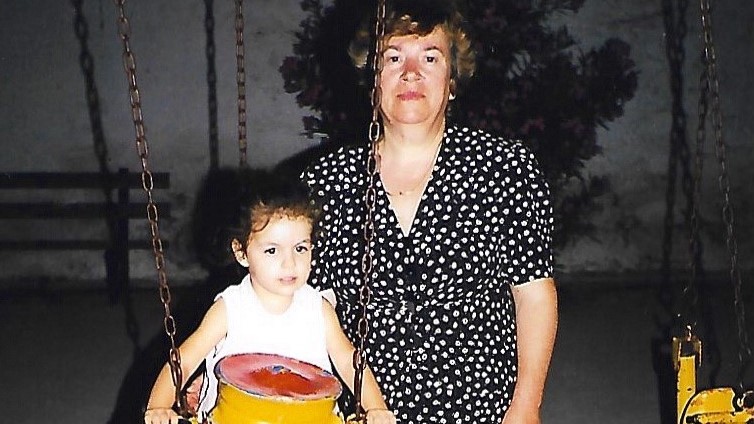By Marianna Alepidis
When I was 10, I had grasped just about enough of the Greek language to start writing to my yiayia Marianthe in Greece.
As a child, and admittedly even now into adulthood, I had been obsessed with the idea of sending and receiving mail, and the anticipation of finding out what was in those envelopes.
Unfortunately, these days it’s usually just my water bill, but back then yiayia and I would write back and forth to one another.
I would tell her all about what I was learning at school, and would search up every second word in my Greek-English dictionary to make sure my spelling was correct.
By the time I hit high school, I had fallen off the bandwagon a little, and retired to speaking to her on the phone from time to time.
When the pandemic rolled around, I found myself reverting to analogue ways of communication. I longed to make mundane life romantic in some way, and so I would send my friends postcards and letters from just a few suburbs away. As a consequence, this ignited the little Marianna inside of me to write to her yiayia once again.

I stayed at Greek school right through the end of high school, and even picked up classes at university for as long as I could before they were sadly removed as electives. I was lucky to learn the language in its more technical form, beyond the conversations I would have with my parents and grandparents in my home.
In all honesty, my written Greek never came as easily to me as my reading and speaking, but it was still important to me to be able to string a few words together on paper, just in case I’d have to fill out paperwork overseas one day.
Writing to yiayia, over a decade since I had sent her my last letter, was like clambering up a muddy hill. I was riddled with the anxiety that I would look completely illiterate to her, when in hindsight, she was just delighted to receive something other than a bill in the letterbox.
Once I got over my fear, I found myself relearning all the grammar and spelling rules my wonderful Greek school teacher Mr Pericles had taught me. It’s as if my muscle memory took over.
I relished in the feeling of putting pen to paper and the excitement of writing about what I had gotten up to the previous month and the plans I had in the future. Granted, by the time yiayia receives my letters now, the future in my words has already come and gone, but it feels like a transportation back in time.
My grandmothers, before they became in-laws, would write to one another as friends, sending letters that would cross more seas and countries than most people would in their lifetime. I was enamoured looking through the ones my yiayia Sotiria, who moved to Australia in the early waves of Greek migration, had kept in an old suitcase. Their daily lives, hopes and dreams all etched onto lined paper.
I’m not sure if receiving my letters rouses any of this nostalgia of the ‘good old days’ for my yiayia Marianthe in Greece, but the personalisation of seeing someone’s own handwriting adds a sense of intimacy often lost over Arial font text.
Writing these letters has not only re-romanticised the little things in my life, but it has highlighted the significance of learning a language as a second generation Greek-Australian. Language is inevitably lost through generations, dwindling down until all that’s left is a foreign sounding surname, and no further connection to it.
Many of my friends, who had left Greek school behind in their early learning years, lament their lack of Greek language skills now in adulthood. It’s never too late to learn, or in my case, re-learn, as long as you push past the fear of sounding a little silly to begin with.


